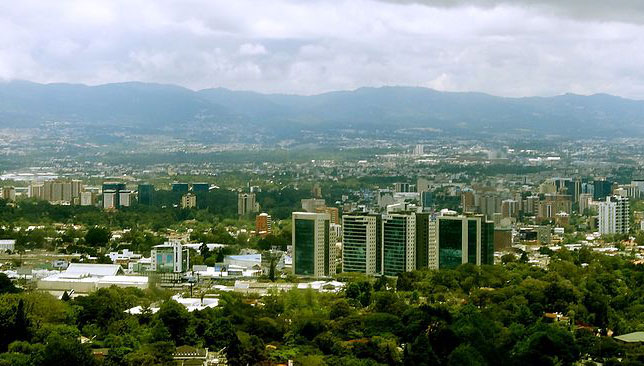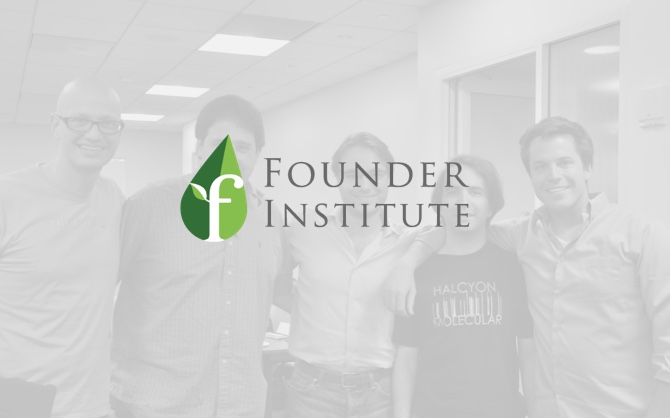
Startup ecosystems can be fragmented, competitive, and hidden to newcomers, which is detrimental for local startups and community growth. The Startup Ecosystem Canvas seeks to provide local entrepreneurs with a clear list of resources for every stage of their startup journey, and outline a basic framework for communities to map their ecosystem.
With applications for the Guatemala Founder Institute coming to a close, we are excited to release the Guatemala Startup Ecosystem Canvas, which is currently in Draft v2 below! It was developed by the Guatemala Founder Institute and local leaders Ana Peralta, Rocio Pinto, Sofia Hegel and Enrique Novella.
This is just the first version, and more input is needed, so please leave your comments on this collaborative Google document for the next update.
If you are interested in launching a company in Guatemala, applications are currently open for the Guatemala Founder Institute. Learn more and apply at http://fi.co/apply/guatemala.
Startup Stages
There is no one right way to build a technology company, but for the sake of simplicity we have outlined a basic, common, sequential framework.
1. Idea Stage
This is where new entrepreneurs get inspired, learn best practices, develop skills, validate ideas, and begin to build their team and product.
A. Inspire
- Startup Media: Centralized local information, listings, and news. (i.e. startup blogs/ publications/ lists/ FB groups/ newsletters)
- Inspirational Events: Open, inclusive, beginner startup events (i.e. Startup Weekend, idea fairs, and inspirational meetups)
B. Educate
- Best Practices: Beginner knowledge-sharing events. (i.e. beginner events that serve to educate more than inspire).
- Training & Feedback: Skill & Idea development. (Ex. bootcamps and comprehensive training programs, like Founder Institute, etc)
C. Validate
- Team Formation: Resources for teaming up. (i.e. events or other resources that facilitate early-stage recruitment and cofounder matching)
- Build First Product: Hackathons & resources to build. (i.e. hackathons and other builder-focused events and resources)
2. Launch Stage
In this stage, entrepreneurs establish and formalize the company, develop the product, get feedback from customers, and prepare for the next step.
A. Start
- Establish: Law firms & banks for startups
- Workspace: Co-working and flexible workspaces (note: “official” office space goes in 3.1.a. Infrastructure)
B. Develop
- Formalize: Accounting, development and HR for early-stage startups.
- Prepare for Seed: Incubators and advanced mentorship. (i.e. advanced knowledge sharing, later stage events and resources for startup TEAMS)
C. Launch
- Pitch & Demo: Show local startups for investment (i.e. demo days for companies seeking seed investment)
3. Growth Stage
Here, a startup proves their utility, receives recognition, and scales up. This usually requires funding, angels, VCs, and ways to connect them to startups.
A. Recognition
- Investor Networking: Connect professional investors with founders. (i.e. events or groups that facilitate connections with professional investors)
- Major Media: Mainstream local business press. (i.e. major local or regional publications that frequently champion local businesses)
B. Funding
- Angels / Micro-VCs: Seed-stage investors
- Venture Capitalists: Series A and beyond
C. Growth
- Infrastructure: Office space, HR, local business insurance. (i.e. office space/ HR/ insurance providers for capital-rich companies to grow and scale)
- Expansion: Growth accelerators/consultants. (i.e. programs and business consultants for capital-rich companies to grow and scale)
4. Success Stories
Successful homegrown companies that have raised significant institutional funding, employ a large workforce, or have achieved liquidity.
Supporters
To facilitate the steps, every ecosystem needs strong supporters.
1. Evangelists
Successful local founders who lead the ecosystem & frequently mentor newbies.
2. Government
Public organizations that facilitate local economic development
3. Talent
Major local business or tech universities and employers that attract and retain local talent.
- Local Universities (universities with prominent technical or business programs)
- Local Employers (Major technical employers, like Microsoft or Google or large local companies, with large local offices)
If you are interested in launching a company in Guatemala, applications are currently open for the Guatemala Founder Institute. Learn more and apply at http://fi.co/apply/guatemala.
Note: The Startup Ecosystem Canvas is a perpetual work in progress. Learn more at http://fi.co/canvas, and comment on this document to provide your feedback.



